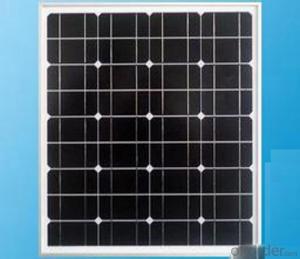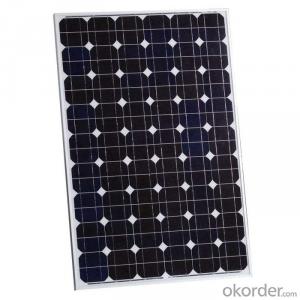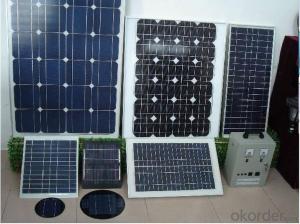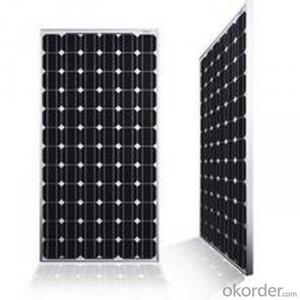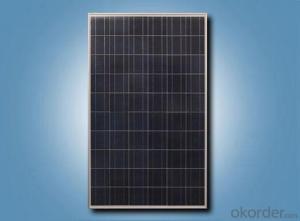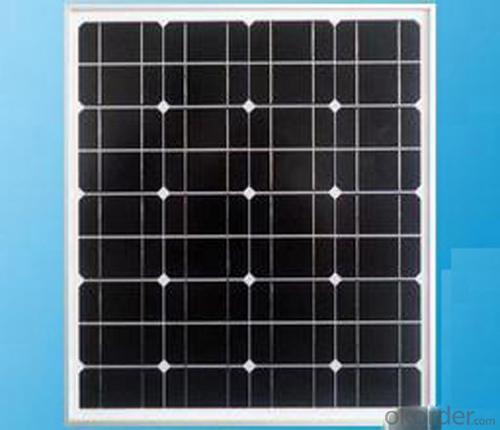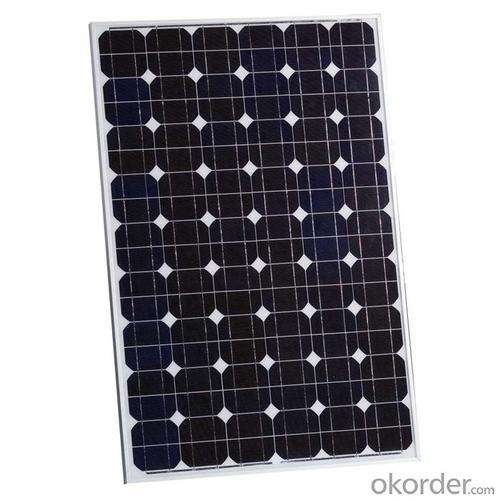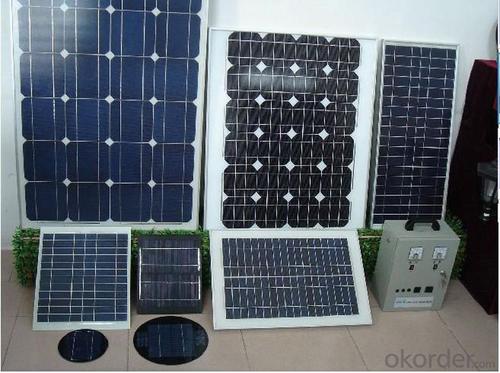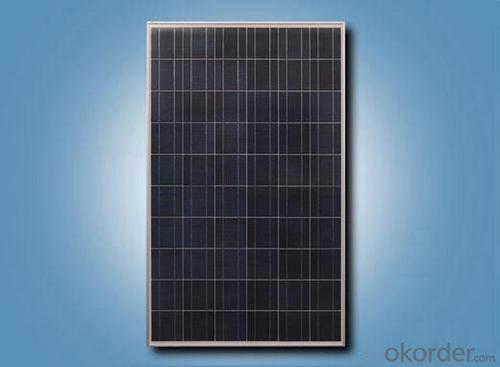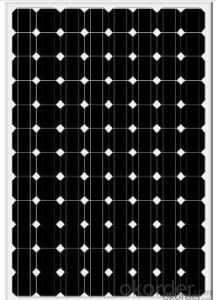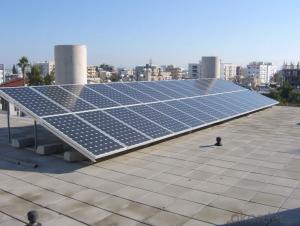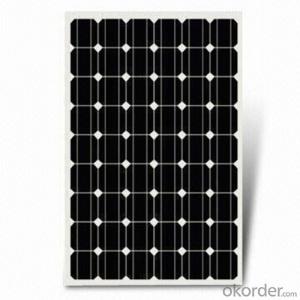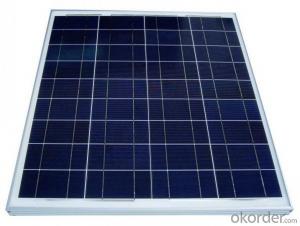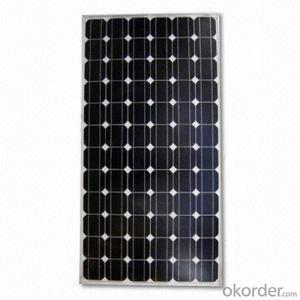36V Monocrystalline Solar Panel 240W with TUV Certificate
- Loading Port:
- China main port
- Payment Terms:
- TT OR LC
- Min Order Qty:
- 500 watt
- Supply Capability:
- 2000000 watt/month
OKorder Service Pledge
OKorder Financial Service
You Might Also Like
36V Mono Solar Panel 240W with TUV Certificate
Features for monocrystalline solar panel :
1. Max Power Poly Solar Panel 310W and Mono Solar Panel 335W ;
2. Type of Connector : Compatiable Type MC4 ;
3. No. of Draining Holes in Frame : 16
4. High Transmission ,Low Iron and 3.2mm Tempered Glass ;
5. EVA Encapsuiation ;
6. White Tedlar Back side ;
7. IP65 Rated Junction Box ;
8.Clear Anodized Aluminum Alloy Type 6063T5 Frame ;
monocrystalline solar panel picture :
Quality and Safety for monocrystalline solar panel :
1. ndustry leading power output warranty, 25 year 80%, 10 year 90% power warranty and 10 year product warranty
2. ISO9001:2008 (Quality Management system) certified factory
3.Product Quality warranty & products Liability Insurance to guarantee and user' benefits
Picture details for monocrystalline solar panel :
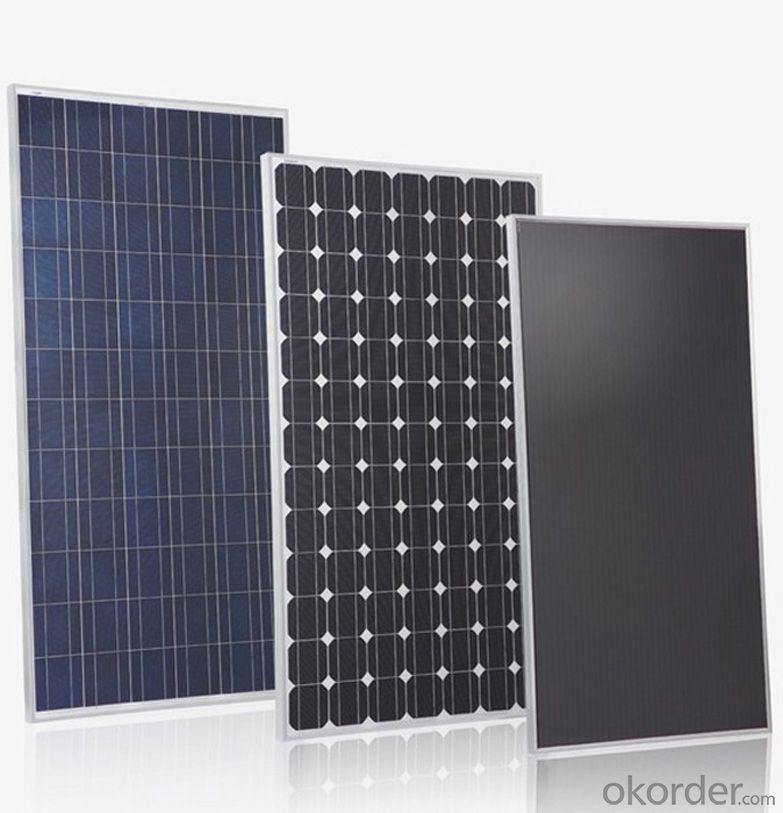
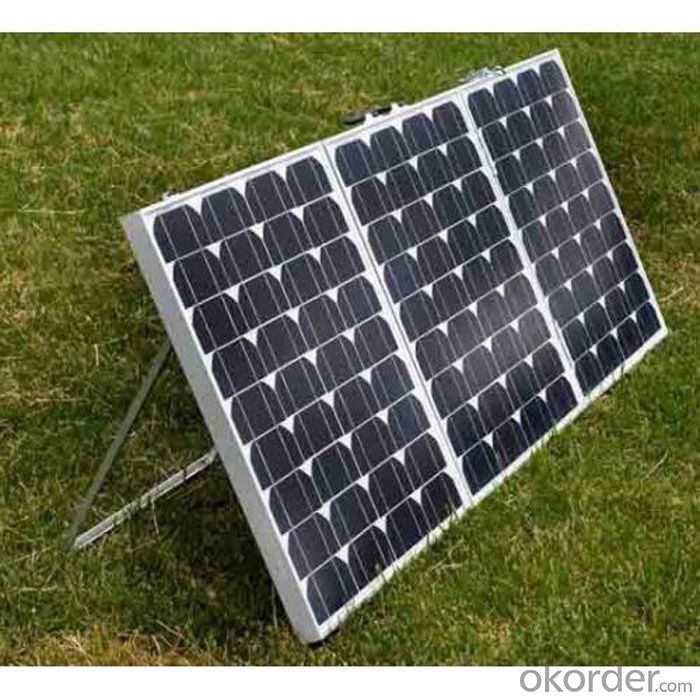
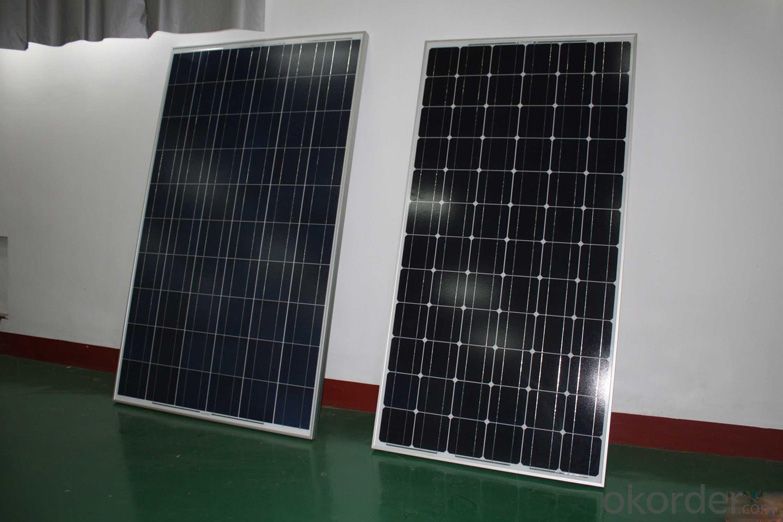
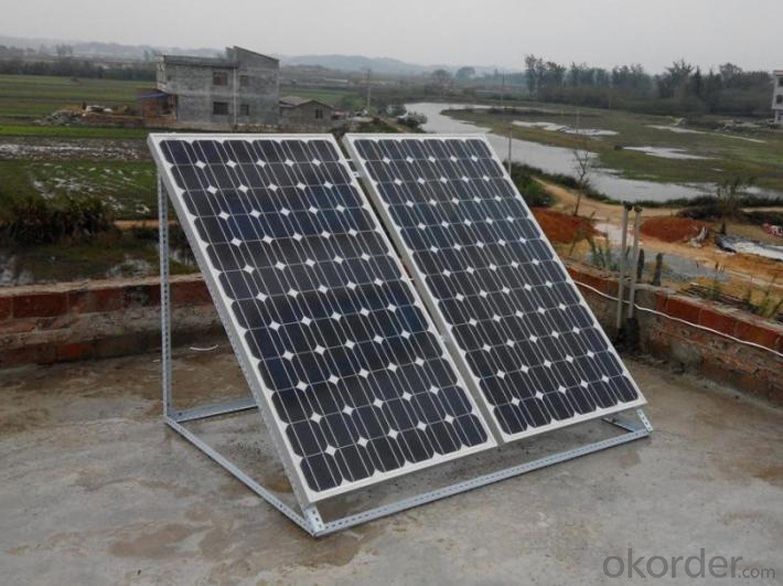
Packaging & Shipping
Packageing Configuration : 26pcs / Box
Quantity Pallet : 1 box / Pallet
Loading Capacity : 812pcs/ 40'HQ
FAQ:
①what price for each watt?
it depends on the quantity, delivery date and payment terms,
②what is your size for each module? can you tell me the parameter of your module?
we have different series of panels in different output, both c-si and a-si. please take the specification sheet for your reference.
③Can you provide the peripheral products of the solar panels, such as the battery, controller, and inverter? If so, can you tell me how do they match each other?
Yes, we can, we have two companies for solar region, one is CNBM International, the other is CNBM engineering Co.
We can provide you not only the solar module but also Solar Cells, the off grid solar system, we can also provide you service with on grid plant.
④What is your warranty system?
Our product performance guarantees for 25 years
• 12 years guarantee for workmanship
• Timeliness of delivery
• Quality Products certified (TÜV, UL, CE, ISO)
⑥ Can you do OEM for us?
Yes, we can.
- Q: Can solar panels be installed on a car or electric vehicle?
- Yes, solar panels can be installed on a car or electric vehicle. These panels can be mounted on the roof or other suitable areas of the vehicle to capture sunlight and convert it into electricity, which can then be used to power various components or charge the vehicle's battery. However, the amount of energy generated by these panels may be limited, and they are typically used as a supplementary source rather than a sole power provider for the vehicle.
- Q: I need a solar panel for my laptop as i am going camping in the desert, and i need my laptop. There are two choices of solar panels, One is 0 watts and 2 V and maximum power current 0.56 amps. The other one is 2 watts, 2 V and no mention of current. My laptop plug says input 00-240V and .5A and then output 5V-5A. Which one should i get for my laptop. If there are other choices please tell me ill look them up on OKorder.Thanks
- I'm afraid neither of these panels will do much for charging or running your laptop. If the power brick is supposed to emit 5 volts at 5 amps, that's 75 watts. Neither of those panels provides enough voltage and the power output is obviously far too small. The capabilities of solar power are vastly overestimated for small panels. Sunlight is limited to about kilowatt per square meter under ideal conditions (summer time, clear blue sky, for a few hours around noon in the US southwest). But consumer panels top out at about 5% efficiency, so your limit is 50 watts per square meter - in other words you would need about half a square meter, or about six square feet, of panel to provide 75 watts. And even under ideal conditions you will only get that much for a few hours each day. Also, the panel's voltage output is not regulated, so even if you find a panel that emits 5 volts (this would actually have to be made up of groups of 30 cells in series, as they emit half a volt each at most) you can't just connect the panel output into your laptop's DC in. You'd need a regulated DC-to-DC supply, and since that is not 00% efficient it will cost a bit of the power... now you need even more panel area. All in all, not really a practical thing to carry along on a camping trip.
- Q: What is the impact of roof pitch on solar panels' efficiency?
- The impact of roof pitch on solar panels' efficiency is significant. A steeper roof pitch allows for better solar panel orientation towards the sun, maximizing the amount of sunlight they can capture. This leads to increased energy production and higher overall efficiency. However, a flatter roof pitch can still be suitable for solar panels, as long as they are properly tilted or mounted to optimize sun exposure. Ultimately, the ideal roof pitch for solar panels depends on factors such as geographic location, climate, and the specific solar panel technology being used.
- Q: I've been reading up on Solar panels because I think in the long run this would be beneficial in the long run. My Dad had looked into it before passing and had said it was too expensive. How much does it range for getting them placed on the roof and how exactly does that work? I think I remember being told that PGE has incentives and could possibly even end up paying you for having it? What does having panels cover? I know electricity but does it also heat things up? Sorry I'm kinda dee dee dee on this lol. Any and all information would be greatly appreciated. If anyone has solar panels can I get your experiences with them? Thanks!!
- There's a few different kinds of solar panels. Some of them are only for collecting heat, they're relatively inexpensive and not a bad deal, though installation can be expensive of course. The most sophisticated of these use some pretty high tech collectors to heat up an antifreeze solution that in turn is circulated through a reservoir (how water heater), to supply the house. Your electric producing solar panels are more expensive. You can go on OKorder and do a search on photovoltaic panels and get a pretty good idea real quick. The panels alone can run you 2 or 3 bucks a watt of output or more, and you may need 3 or 4 thousand watts of output to give you reasonable system for your house, depending on how much electricity you use. Then there's installation, for which you may need a professional electrician and so on. If you want a system incorporating deep cycle batteries then that's another expense, but you don't necessarily need those if you're not planning to take yourself completely off the grid. Not that the systems are really complicated. Some people wire panels together themselves from scrap cell components to save money. Of course you'd need to understand the basic wiring involved for that, and you'd almost certainly be required to retain an electrician to tie any system into the grid itself. Although there is such a thing as a plug in grid tie inverter. This is is a gadget that will take your DC solar panel output and feed it into the standard wiring of your house via an ordinary electrical outlet. You'd still need to understand enough to get the DC voltage right no doubt.
- Q: Hi, I am very interested in solar panels and would like to know more.Can someone please give me a basic explanation of how solar panels work?Thank you
- A solar panel is a panel of a certain material that is very sensitive to light. Now, when you place if out in the sunlight, the photons enter that material, and gets converted to energy in the form of electrostatic electrons. These electrons gets carried away by the small silver wires you see running zig-zag over the panel, and is then used as electronic current. It is actually a lot more intricate and detailed than this, but this is more or less how it works. The reason is works better in sunlight, is simply because sunlight has a lot more energy behind it than lightbulbs and other sources, but they work as well!
- Q: Can solar panels be installed on a shaded area?
- Solar panels can still be installed in shaded areas, but they may not be as effective in generating electricity compared to panels installed in direct sunlight. The amount of shade and duration of shading throughout the day will impact the overall energy output of the solar panels.
- Q: Can solar panels be installed on a pole or ground mount?
- Yes, solar panels can be installed on both poles and ground mounts. Pole-mounted solar panels are typically used in situations where there is limited space or when the panels need to be elevated for better sunlight exposure. Ground-mounted solar panels are commonly used in larger installations or when there is ample available land. Both options offer flexibility in placement and can effectively harness solar energy.
- Q: Does any one know how to make a solar panel or a type of Alternative energy maker. Best answer gets 0 points
- shows some solar cookers. These might be usable instead of a barbeque grill.
- Q: I'm looking into buying solar panels, there are all kinds of ranges of energy output...but my question is, when ti says...say 50 watts of power...does that mean 50 watts a day, an hour, a minute, what?
- A 50-watt rating means the panel will produce 50 watts as long as the standard conditions are maintained. So if you had this bright sun and cool temperatures for 6 hours, the panel would deliver 50 x 6 = 900 watt hours, or a little shy of kilowatt-hour. Kilowatt-hours (kWh) is the reading on your electric bill. However, like most advertising, the 50-watt number is not realistic. They assume that the air surrounding the panel is very cold. 25 watts is a better number to use for this size of panel for engineering purposes.
- Q: Can solar panels reduce electricity bills?
- Yes, solar panels can reduce electricity bills. By harnessing the sun's energy to generate electricity, solar panels can offset a significant portion of a household's electricity consumption, leading to lower monthly bills. Additionally, excess energy produced by solar panels can be fed back into the grid, allowing homeowners to earn credits or receive payments from utility companies.
Send your message to us
36V Monocrystalline Solar Panel 240W with TUV Certificate
- Loading Port:
- China main port
- Payment Terms:
- TT OR LC
- Min Order Qty:
- 500 watt
- Supply Capability:
- 2000000 watt/month
OKorder Service Pledge
OKorder Financial Service
Similar products
Hot products
Hot Searches
Related keywords
